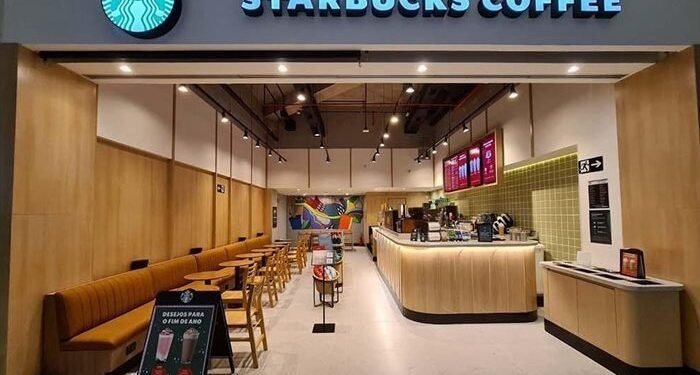Starbucks Plans Explosive Expansion in Brazil — Operator Aims for 1,000 Locations
Starbucks Plans Explosive Expansion in Brazil — Operator Aims for 1,000 Locations
In a bold move, Brazilian restaurant operator Zamp SA has announced plans for an ambitious expansion of Starbucks locations across the country. With just over 100 stores currently in operation, Zamp aims to grow that number to an astounding 1,000 locations, nearly a ten-fold increase. This aggressive growth plan is part of Starbucks’ broader global expansion strategy, with Brazil emerging as a key market for future success.
1. Tapping Into Brazil’s Growing Coffee Culture
Brazil, the world’s largest coffee producer, has a deeply ingrained coffee culture, and Starbucks is looking to tap into the growing demand for premium coffee experiences. As more Brazilians embrace specialty coffee and urban centers continue to expand, Starbucks sees a significant opportunity to position itself as a leader in the country’s booming coffee market. Zamp SA is betting on this growing interest, confident that urbanization and evolving consumer preferences will fuel demand for the brand’s high-quality coffee offerings.
2. Zamp’s Role in the Expansion
As the Brazilian operator of Burger King, Zamp SA already has significant experience in the restaurant industry, and it is now turning its attention to Starbucks. Zamp’s expansion strategy will focus on opening stores in high-traffic urban areas, as well as smaller cities where Starbucks is currently underrepresented. The company is set to build on its deep understanding of the Brazilian market, leveraging local preferences and expanding Starbucks’ footprint into emerging regions of the country.
3. Positioning Brazil as a Key Market
This expansion is part of Starbucks’ larger goal of global growth, with Brazil playing a crucial role in the company’s future success. As one of the largest and most populous countries in the world, Brazil represents a vast, untapped opportunity for Starbucks to dominate the coffee retail landscape. The country’s rapidly expanding middle class and growing interest in international brands create fertile ground for Starbucks to thrive.
4. Challenges and Opportunities
While the Brazilian coffee market is large, Starbucks faces intense competition from local coffee shops and established chains. Brazil is home to countless independent cafés, many of which cater to a loyal customer base with affordable prices and a deep knowledge of local coffee. Additionally, local chains such as Café do Ponto and Fran’s Café offer strong competition with their well-established brands.
However, Starbucks’ reputation for quality and innovation, along with its global brand recognition, could give it an edge in attracting Brazil’s growing number of affluent urban consumers. Zamp’s ability to tailor Starbucks’ offerings to Brazilian tastes, such as incorporating local flavors and coffee traditions, will also be critical to the company’s success.
5. The Future of Coffee in Brazil
As Brazil’s coffee culture continues to evolve, consumers are seeking premium experiences and global brands, making it an ideal time for Starbucks to expand aggressively. The plan to open 1,000 stores will not only increase Starbucks’ presence in the country but also contribute to shaping the future of Brazil’s coffee market.
Zamp’s ambitious vision could transform Starbucks into a dominant player in the region, provided it can navigate the competitive landscape and meet the growing demands of Brazilian consumers. With urbanization and the rise of coffee aficionados in Brazil, the stage is set for Starbucks to capture a significant share of this booming market.
Conclusion: Starbucks’ Brazilian Ambitions
Zamp SA’s plan to increase the number of Starbucks locations in Brazil from just over 100 to 1,000 represents one of the most ambitious expansion efforts for the brand in recent years. By capitalizing on Brazil’s thriving coffee culture and urbanization trends, Starbucks aims to become a leading force in the country’s premium coffee market. While the competition will be fierce, Zamp’s local expertise and Starbucks’ global brand recognition position the company well to meet Brazil’s caffeine demand and achieve long-term success in this key market.



